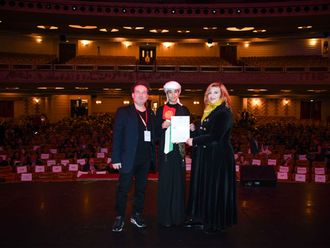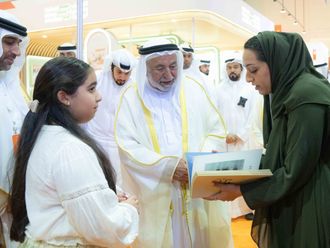Army generals from 10 south-east Asian countries yesterday issued a landmark declaration against terrorism but stopped short of turning the Association of South-east Asian Nationals (Asean) into a regional security organisation.
During a meeting in Manila yesterday, the Asean Chiefs of Armies Multilateral Meeting (ACAMM) arrived at a consensus to jointly combat terrorism in reaction to the rash of terrorist attacks on September 11 in the United States.
Army officials from Asean member countries agreed to share information on terrorist groups; develop their respective armies' capabilities to detect, monitor and counter terrorist acts; and strengthen cooperation to combat terrorism, including joint border patrols, according to Lt. Gen. Jaime Delos Santos, chief of the Philippine Army.
"We are mindful of the fact that each Asean country has extremist groups to contend with in their home ground and we believe that solving this problem through concerted efforts on the international level would be for the benefit of the countries concerned," Lt. Gen. Delos Santos noted.
The ACAMM's Manila declaration marks the first time that the 10 armies agreed to jointly cooperate on a politico-military level, as the Asean strictly observes a policy of non-intervention in the internal affairs of its member states.
"The era of international terrorism is rapidly changing this policy of non-intervention," according to a Filipino army officer privy to the meeting held by the ten generals prior to the press conference yesterday announcing ACAMM's anti-terrorism declaration.
Lt. Gen. Delos Santos, however, said that joint military action, as in the use of troops from another member country to quell dissent threatening the government of another Asean state, is not included in the arrangement.
He noted that the joint military action will focus on efforts to curb "international terrorism". "Let us make it clear that the Asean is not a security organisation, we are only concerned with terrorist groups with links outside their own country and we will suppress this based on the limits of the law in that country," Lt. Gen. Delos Santos clarified.
He noted that the Asean generals have agreed to hold exercises that will simulate conditions and possible reactions in the event of a terrorist attack on a member state. "This is basically a war game that will be held mainly on the conference table. It will serve to formulate possible actions to be taken in case a terrorist attack takes place in an Asean country," he explained.
The declaration also was a reiteration of a November 7 resolution against terrorism by Asean heads of state during the 7th Asean Summit in Brunei. "Mindful of the recent global incidents and in consonance with the recent declaration, there is an immediate need to address these pressing concerns, otherwise the same will adversely affect regional security and economic gains," the ACAMM resolution stated.
The resolution also comes amid reports that the Al Qaida network of Islamic extremist groups has already established contacts with various organisations operating in Indonesia, Malaysian and the Philippines – three countries with the largest Muslim population in south-east Asia.
The extremist Abu Sayyaf, a group of self-styled Islamic independence fighters based in southern Philippines' Sulu and Basilan islands have reportedly received start-up funding from international dissident and Al Qaida chief, Osama bin Laden, during the early 1990s. Similar extremist groups in Malaysia and Indonesia have also been reported to have links to Al Qaida.
But Malaysia, a staunch advocate of non-intervention, cited that there is no confirmation on this report. "We have for decades contended with terrorism from communist insurgents but as to reports about Islamic extremist groups receiving funding from Bin Laden, we have no confirmation on this," Gen. Tan Sri Hashim bin Hussein, Malaysian Army chief, said.
Asean armies agree on joint action on terrorism
Army generals from 10 south-east Asian countries yesterday issued a landmark declaration against terrorism but stopped short of turning the Association of South-east Asian Nationals (Asean) into a regional security organisation.












